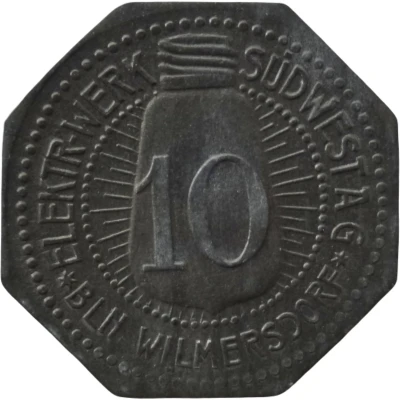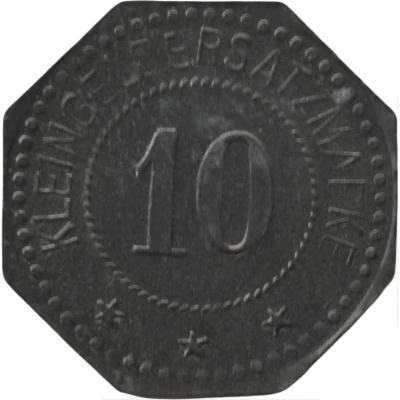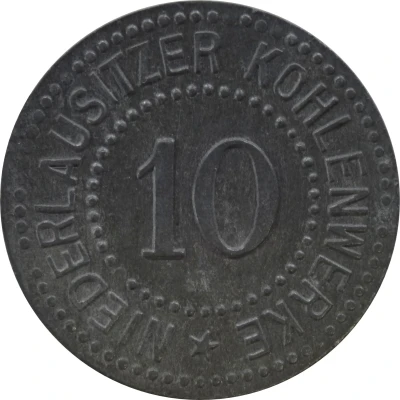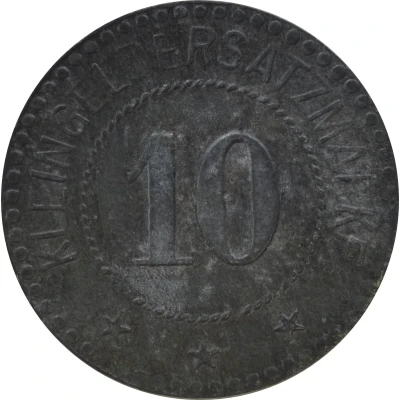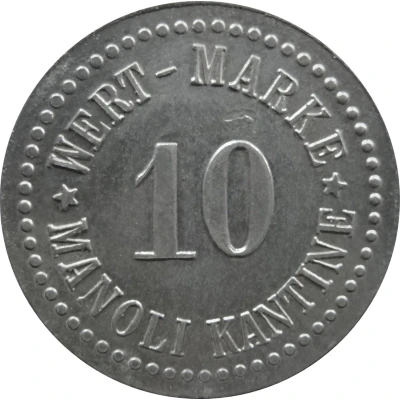
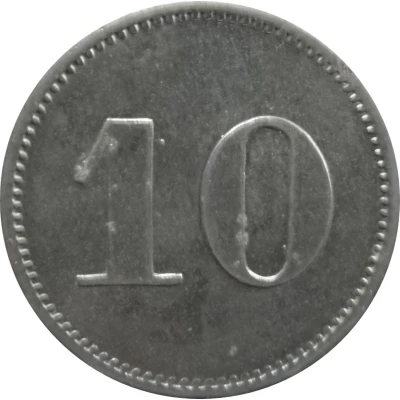

© Willem63 (CC BY-NC-SA)
10 Pfennigs - Berlin (Manoli Kantine) ND
| Zinc | 2.6 g | 23.0 mm |
| Issuer | Prussian province of Berlin (German notgeld) |
|---|---|
| Type | Standard circulation coin |
| Value | 10 Pfennigs (10 Pfennige) (0.10) |
| Currency | Mark (1914-1924) |
| Composition | Zinc |
| Weight | 2.6 g |
| Diameter | 23.0 mm |
| Thickness | 1.10 mm |
| Shape | Round |
| Technique | Milled |
| Orientation | Medal alignment ↑↑ |
| Demonetized | Yes |
| Updated | 2024-10-04 |
| Numista | N#317469 |
|---|---|
| Rarity index | 97% |
Reverse
Pearl rim, with denomination centered
Script: Latin
Lettering: 10
Edge
Plain
Comment
Menzel: BBBFa: Zigarettenfabrik (Cigarette factory)
Manoli was the name of a German cigarette factory. It was founded by Jakob Mandelbaum (* 1859; † October 23, 1918) in Berlin, initially under the name Cigarette Factory Argos, and in 1897 it is said to have been named after Jakob Mandelbaum's wife Ilona Mandelbaum (read backwards). The origin of the name cannot be proven with certainty, because Jacob Mandelbaum's wife's name was Rosa and she was born in Jotzen in 1857. There are suggestions that Manoli may have been a nickname of Jacob Mandelbaum.
Another variant of the naming names a foreign language as the origin, in which Mandelbaum is translated as Manoli.
The company was known for its excellent packaging design. The Manoli corporate logo, found on merchandise, corporate trucks, window displays and promotional materials, is often cited as an early example of corporate design.
Interesting fact
One interesting fact about the 10 Pfennigs - Berlin (Manoli Kantine) ND coin is that it was made of zinc, which was a common material used for producing coins during the time period. Zinc was chosen for its durability and resistance to corrosion, making it an ideal material for coins that were intended to be used extensively in circulation. Despite being made of a relatively inexpensive material, the coin still features a detailed design, showcasing the craftsmanship and attention to detail that went into its production.
